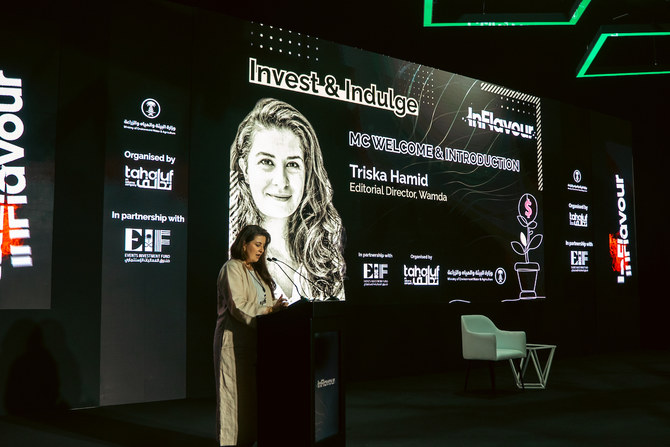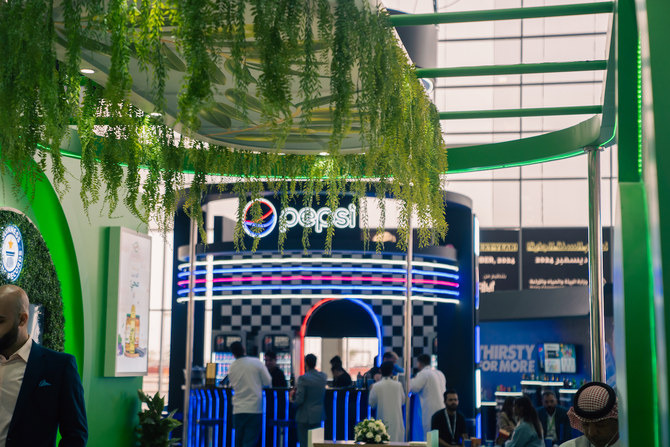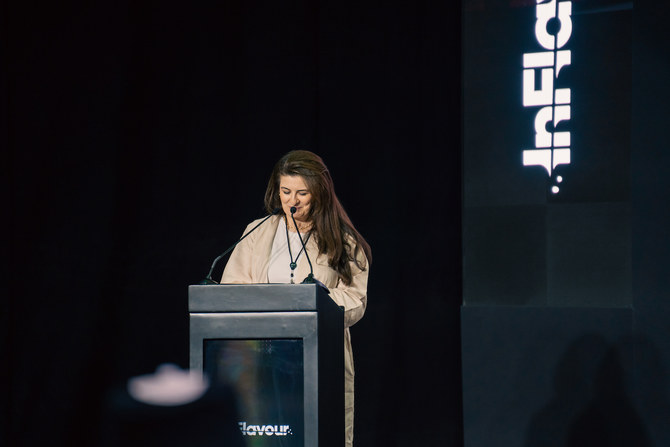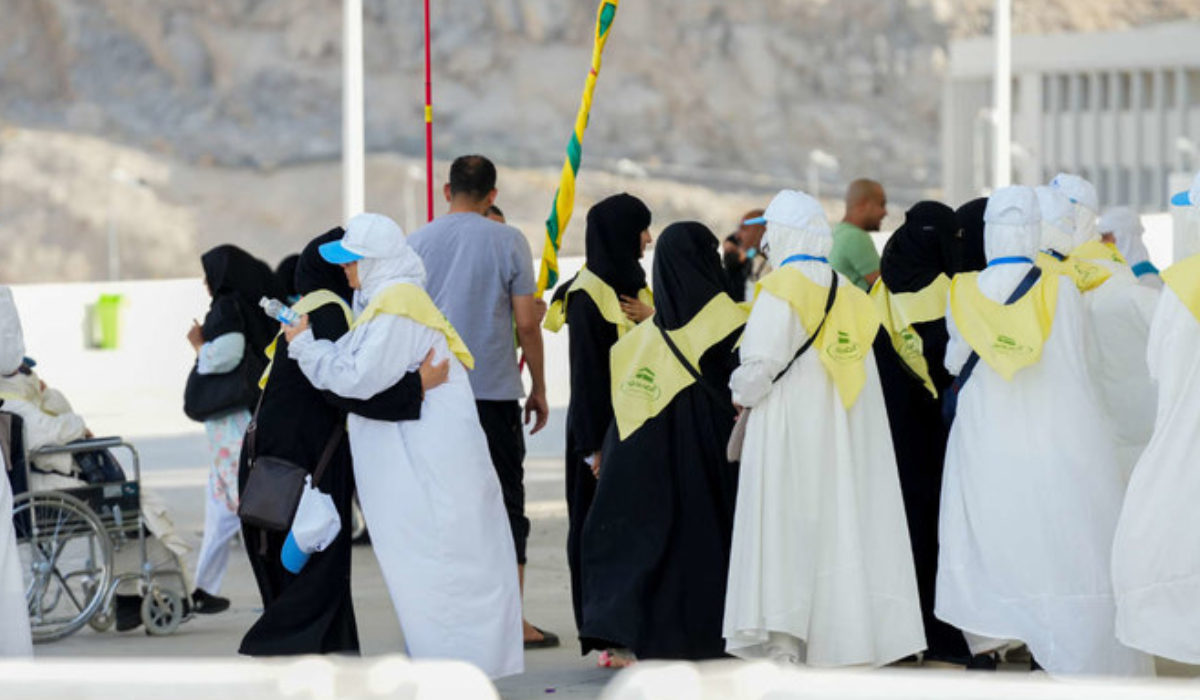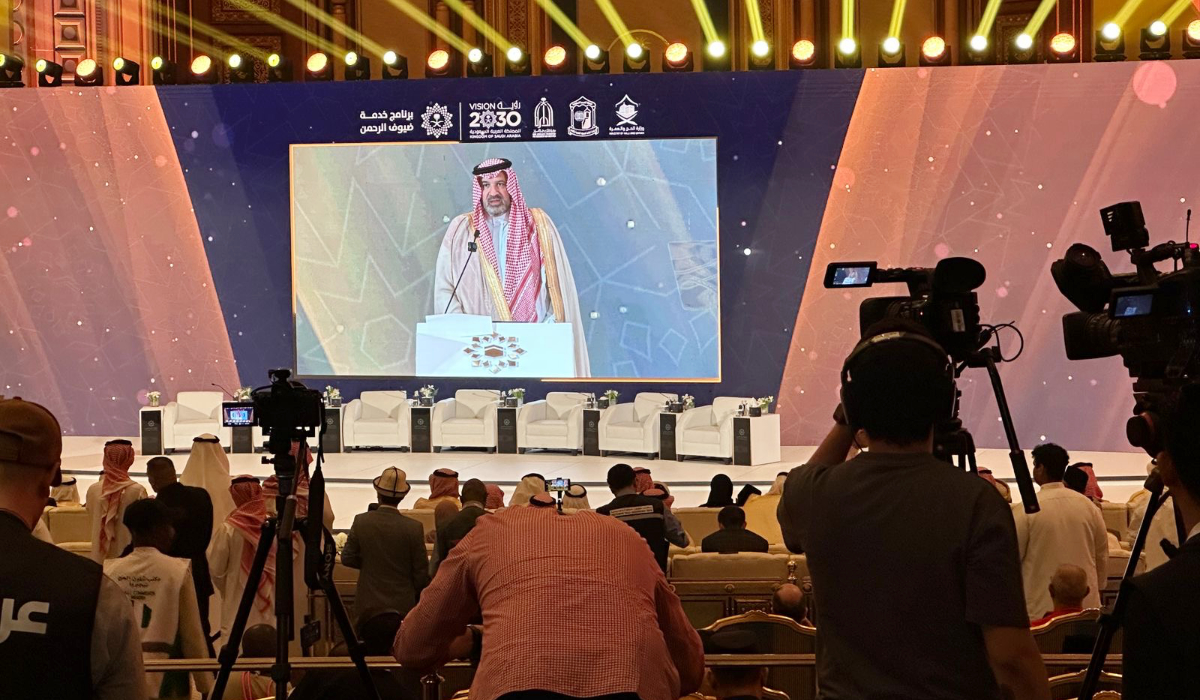RIYADH: InFlavour, the Saudi government’s official trade event for the global food and beverage ecosystem, is taking place at the Riyadh Exhibition and Convention Center from Oct. 29 to 31.
The global food system has faced challenges due to climate change, population growth, resource depletion, and the COVID-19 pandemic.
Under the theme of “Ensuring Abundant Tomorrows,” the event will cover expanding culinary offerings, embracing alternative proteins, cleaner components, and the essence of sustainability.
Triska Hamid, the editorial director at Wamda, a Middle East and North Africa region-focused entrepreneurship platform, said that investment in food tech soared to over $1 billion in 2021.
According to Hamid: “The food sector remains one of the more exciting sectors for investors in the region, and although this has inevitably slowed down given the current economic climate around the world … last year, food tech startups raised $514 million across the MENA region.”
She added that so far in 2023, the sector has managed to attract over $200 million.
Private capital, including institutional and impact investors, can support innovative solutions addressing food insecurity’s root causes.
By leveraging their resources and expertise, investors can transform the food system and enhance food security for all.
Dr. Abdulaziz Al-Malik, deputy minister of research and innovation at the Ministry of Environment, Water and Agriculture, discussed research innovation initiatives by the ministry that have contributed to sustainable food production and community development.
During a panel discussion on “Innovative Solutions for Sustainable Food Production: Bridging Technology and Local Communities,” he said: “The agriculture sector itself has gone through a tremendous transformation in the last eight years, with its contribution to GDP surpassing SR100 million ($26.6 million).”
Al-Malik added that the next leap forward will be fueled by innovation.
“From the other side, local communities usually aspire to have a profitable yet sustainable business,” he explained and noted that technological innovation was key to achieving both.
The current challenges to food security have highlighted the need for a sustainable and equitable food system.
Al-Malik said that an example could be by adopting precision agricultural practices to maximize the output of local farmers and communities and minimize the impact on the environment.
“Another example would be smart irrigation systems, which optimize water use, which is a very scarce resource, especially in our country,” he noted.
He said the caveat is that these solutions must be holistic — they need to be championed and embraced by the users by ensuring that local communities benefit from context specific innovation.
He emphasized the need for effective solutions, saying: “Such innovations should not be done in isolation from the end users, as we need to tailor the solutions themselves to the specific needs and challenges of the local communities and partners.”
CEO of PepsiCo Middle East Aamer Sheikh said that Saudi Arabia poses a unique challenge, with 90 percent of the land not suitable for agriculture due to the country’s mainly desert terrain.
He said that PepsiCo is an agriculture company despite being known as just food and beverage. “We source 25 crops across 60 countries with about 7 million acres of land under our stewardship,” he said.
Sheikh added that when PepsiCo brings its global best practices to a country like Saudi Arabia, it is about localizing the value chain or agriculture.
“PepsiCo’s global positive strategy is our enterprise sustainability strategy at the core of our business. The first pillar is positive agriculture, which is all about how we source crops and ingredients while accelerating regenerative practices and strengthening the farming community,” he added.
Another pillar, he said, is the positive value chain, which focuses on making products, by leveraging inclusive and the circular economy.
“The last pillar is positive choices, where you bring the power of your brands to enable consumers to make the right choices that are good for them and the planet,” said Sheikh.
To bolster its sustainable practices in the Middle East and ensure community engagement, PepsiCo sources 100 percent of its potatoes from Saudi Arabia.
“We are working with our farming partners, where we spend more than SR100 million ($26.6 million) annually.”
He said that they have created more than 3,000 jobs in the agricultural sector.
“We are also working with them to conserve the amount of water that we use in this, and so for in the last 10 years, we’ve reduced our water consumption by 45 percent.”
According to the General Food Security Authority, both 18.9 percent of food in Saudi Arabia is wasted and 14.2 percent are lost annually.
These percentages equate to 4 million tons, including dates, potatoes, tomatoes, rice, flour and bread.


